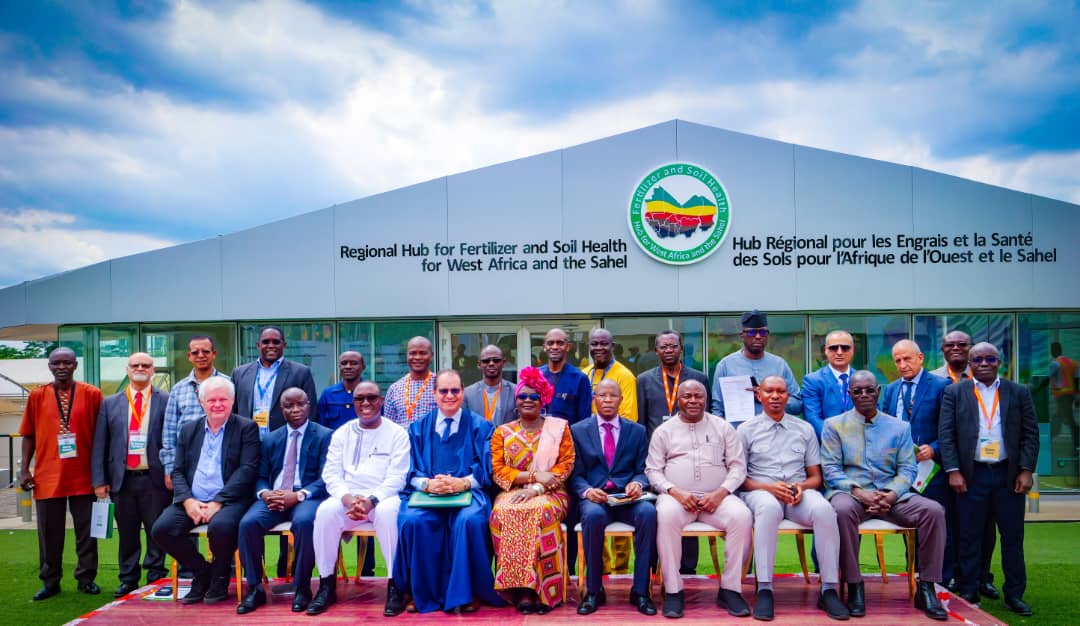The International Institute of Tropical Agriculture (IITA) in Ibadan, Nigeria, hosted the launch of the West Africa Fertilizer and Soil Health Hub, a groundbreaking initiative aimed at revitalizing agricultural practices and bolster food security across West Africa nations and the Sahel.
We’ll Partner IITA To Ensure Food Security In Oyo, Says Makinde
The event brought together key stakeholders including Mrs. Massandje Toure-Litse, ECOWAS Commissioner for Economic Affairs and Agriculture, who highlighted the pressing issues faced by the region’s agricultural sector.
Mrs. Toure-Litse underscored the slow progress in addressing soil degradation and low fertilizer use since the inaugural 2006 Abuja Fertilizer Summit.
Current estimates indicate that fertilizer use in West Africa averages only 20 kilograms per hectare, significantly lower than the global average of over 100 kilograms per hectare.
This disparity has exacerbated food insecurity, affecting millions of people across the region.
“In response to these challenges, regional leaders have renewed their commitment to enhancing fertilizer use and improving soil health,” Mrs. Toure-Litse affirmed.
These partnerships, supported by technical expertise and financial backing from organizations like the World Bank, aim to foster sustainable agricultural practices and enhance regional food security.
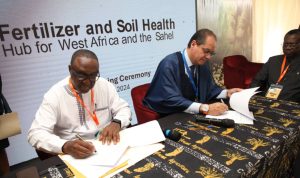
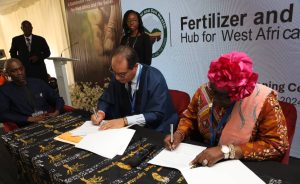
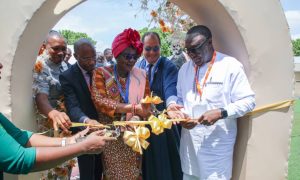
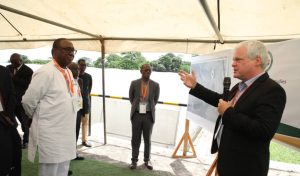
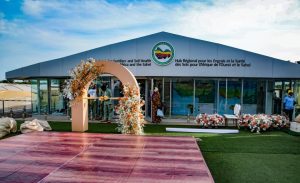
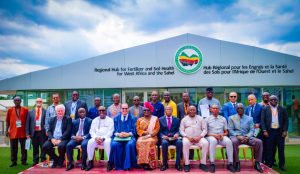
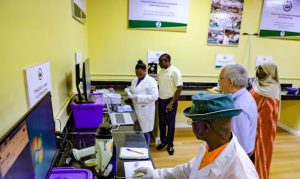
“This significant achievement of the road map was made possible through the Technical leadership of IITA and technical Partners including international fertilizer Development center(IFDC), Africa Plant Nutrition Institute(APNI), OCP Africa and the Financial support of the world bank and OCP”, she said.
“The establishment of this hub is a crucial step towards providing technical support and capacity building to countries, enabling them to develop tailored soil fertility maps and effective fertilizer recommendations.
“Dr. Bernard Vanlauwe, Deputy Director General-Research at IITA, elaborated on the hub’s objectives, emphasizing its role in developing investment plans and implementation strategies for sustainable agriculture.
“We aim to increase fertilizer efficiency while ensuring soil health improvements through innovative soil mapping and capacity strengthening,” Dr. Vanlauwe stated.
“We’re trying to provide technical assistance to countries in the region to see what they can do to increase their fertilizer use and efficiency of fertilizer and making sure that while doing so, soil health is improved” he added.
Dr. Robert Zougmore, Regional Coordinator for West Africa at AICCRA, highlighted the importance of leveraging technology for disseminating agricultural innovations effectively.
“Our focus includes digital tools that enable timely dissemination of information on soil and fertilizer management,” Dr. Zougmore explained.
“This approach aims to reach a wide audience, including small holder farmers, with context-specific solutions.
“The event also witnessed the signing of Memoranda of Understanding (MOUs) between IITA and strategic partners such as OCP and ECOWAS, signaling collaborative efforts to drive agricultural transformation in West Africa.
Looking forward, stakeholders, including governments, financial institutions, technical experts, and farmers, are urged to collaborate closely to achieve tangible outcomes in West Africa’s agricultural sector.
“Empowering farmers, particularly women and youth, is crucial for the success of this initiative,” Mrs. Toure-Litse concluded.
“Together, we can overcome food insecurity and pave the way for a resilient agricultural future in our region.”

